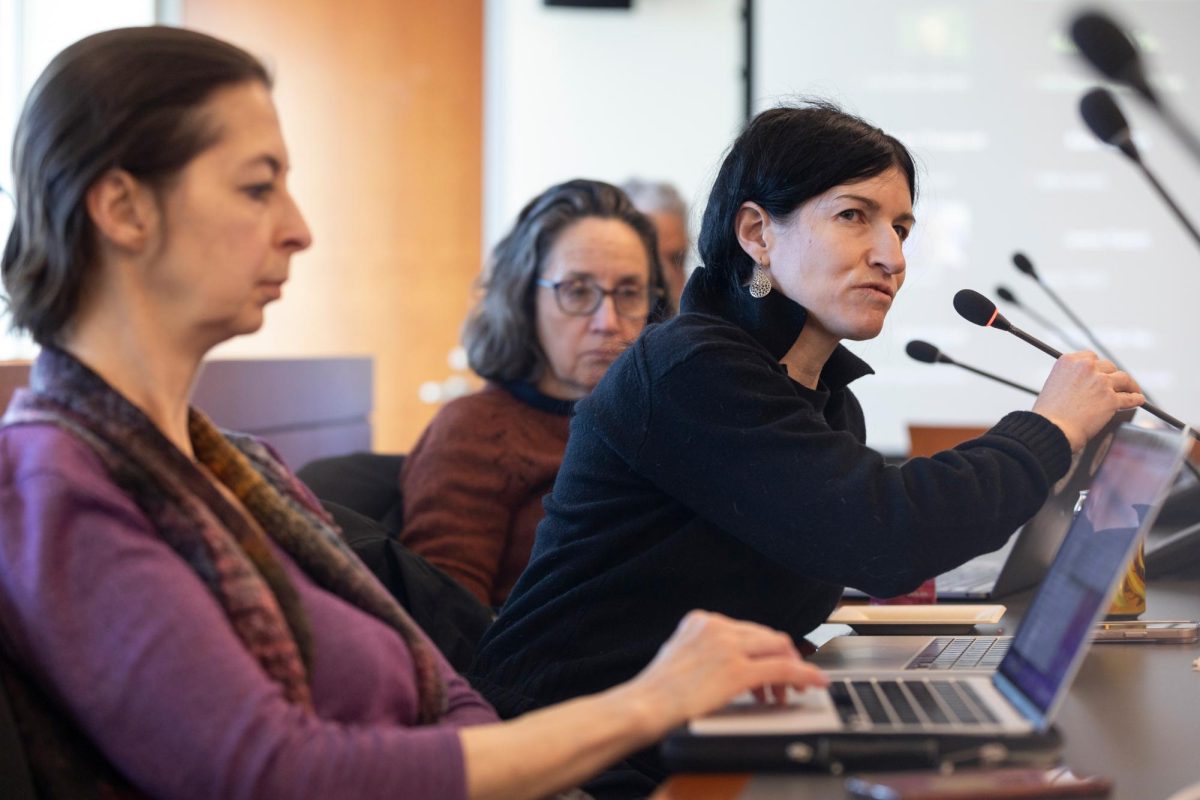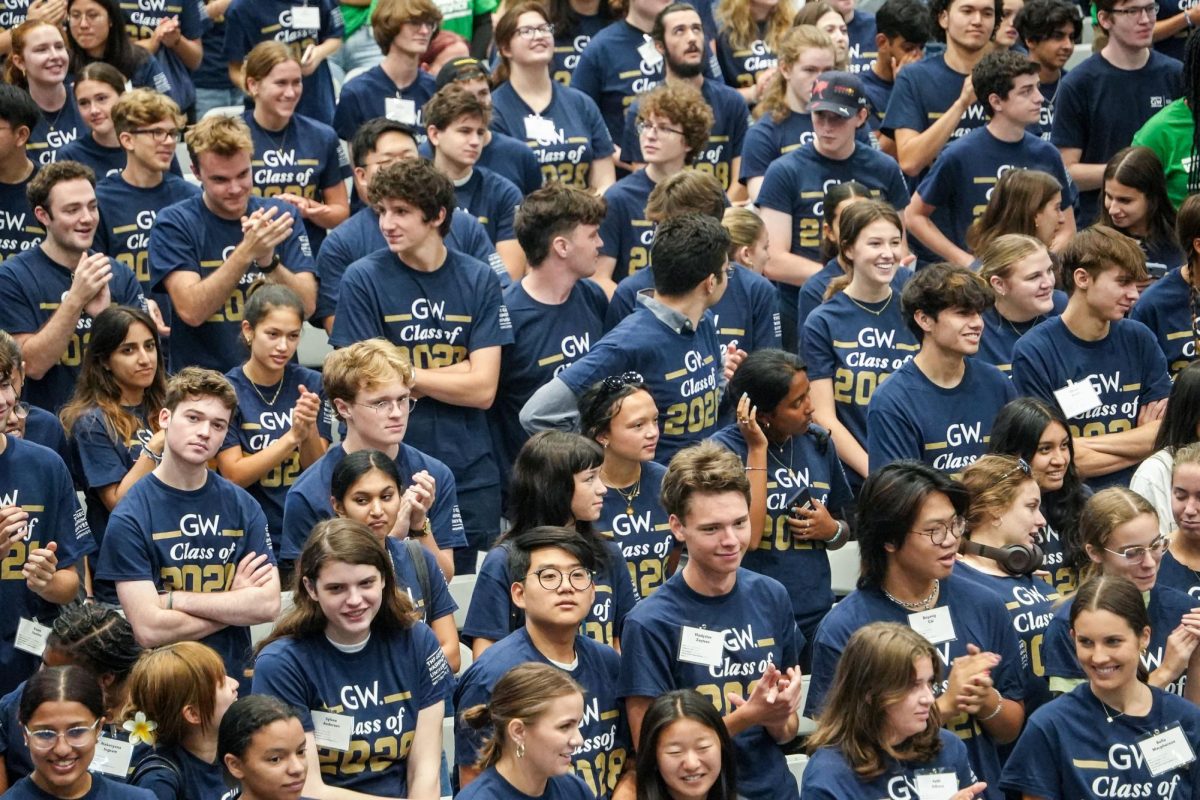Updated: Sept. 8, 2020 at 2:15 p.m.
GW Libraries staff are transitioning tutoring programs and academic success workshops online as classes go online for the fall.
Officials closed Gelman Library in March, citing COVID-19 concerns and later extended due dates for all previously borrowed items until students returned to campus. Geneva Henry, the dean of Libraries and Academic Innovation, said GW Libraries staff will provide virtual resources like research consultations and specialized software to help students with their online classes and will grant some students, faculty and staff members access to the library’s physical space.
She said access to Gelman is “strictly limited” to students, faculty and staff members with active GWorld cards and “special” permission to be on campus this semester. She said GW Libraries staff have removed or rearranged the furniture in Gelman to ensure a minimum of six feet of distance between patrons, and the occupancy level will be kept at or below 25 percent by requiring seat reservations.
Officials approved about 500 on-campus housing requests to students with outstanding circumstances this fall.
Henry said books are currently available for carryout or delivery and can be requested through the online library catalog.
“Once the books have been retrieved from Gelman or received from other libraries, the requester receives an email with a link to schedule an appointment,” Henry said in an email. “When the requester arrives for their appointment, they enter the lobby through the designated door, show their GWorld card and are given a bag with their requested books, which has already been checked out to them.”
Henry said the Top Textbooks program, which provides copies of required textbooks for short loans to students in certain courses, has been suspended for the fall semester.
“During the spring 2020 semester transition to virtual learning, we were fortunate that digital textbook providers made their textbooks freely available, and those included almost all of our Top Textbooks,” she said. “That temporary provision is no longer available and while electronic versions of some of the Top Textbooks are available, most publishers will not allow libraries to purchase an e-textbook version of their textbooks.”
Henry said she “strongly urges” students to tell professors of their restricted access to textbooks and encourage them to adopt open educational resources for their courses.
“The libraries have long been advocates for open educational resources, online resources that are freely available, to replace expensive textbooks and access codes,” she said.
Henry added that students experiencing an “emergency need” for textbooks or course materials can apply for assistance from the GW Cares Student Assistance Fund, adding that Top Textbooks from previous semesters are still available to borrow through the regular book request process in the library catalog.
An August update from GW Libraries staff stated that all borrowed materials would no longer be automatically renewed as of Sept. 1, and students and faculty can either renew outstanding items themselves or return them by mail or via the 24-hour book drop near the revolving doors outside of Gelman.
“Borrowers may renew items up to three times, but this will no longer be done automatically,” the update states. “Once an item has met its renewal limit, it must be returned to the library.”
Academic Commons staff will also provide live workshops on virtual learning for students who are struggling to cope with online classes and have prepared videos on topics like time management to help students stay motivated in their online courses.
“While some students enjoy the online classes, others may feel that online learning is more difficult or just not for them,” the website states. “Much like with classroom learning, virtual learning requires a specific set of skills to be successful.”
The website states that officials have resumed the “limited” sharing of print materials through consortium loan request as of Sept. 1, and books in other libraries in the consortium can be requested through the interlibrary loan service for either delivery or pickup at Gelman.
Research experts said students should take advantage of the virtual resources officials will provide for students instead of in-person facilities in the interest of public health.
Brian Raphael, a professor of legal research at the University of Southern California Gould School of Law, said many students will want to use Gelman’s physical study reservation system because students may not be able to study at home.
“I think many students will want to use this reservation system since their home conditions may not provide an optimal study environment,” he said in an email. “They may also not have good internet connections at home and may wish to utilize the Wi-Fi capabilities offered on campus.”
Raphael said ebooks are easier to study electronically because students can search for key terms and take notes digitally.
“Ebooks have some advantages over hard copy materials, like being able to be searched full-text and in some cases, the ability to be highlighted and annotated electronically,” he said.
Julian Allgood, a serial cataloger and authority control librarian at New York University, said NYU library staff are providing similar resources as GW Libraries staff, like planning to mail physical materials to students and faculty members or provide them the opportunity to pick them up in person.
“What most libraries are mainly attempting to achieve instead is to ensure that students or faculty have access to the content they need, whether physically or electronically,” he said.
He said students and faculty should stick to virtual services and resources instead of going to Gelman as much as possible.
“From a public health perspective, I suspect that until COVID-19 vaccines and treatments are available, limiting the number of people in and out of the University facilities, including the library, is in everyone’s best interests,” he said.
This story has been updated to correct the following:
The Hatchet incorrectly reported that GW Libraries officials have suspended the sharing of print materials through consortium loan request “until further notice.” The sharing resumed Sept. 1. We regret this error.








